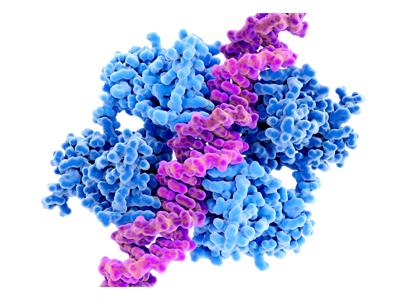A therapy that combines a drug that disrupts DNA repair with chemotherapy cisplatin and gemcitabine does not prolong progression-free survival for patients with urothelial cancer.
DUARTE, Calif. — A Phase 2 trial led by City of Hope, a world-renowned research and treatment center for cancer and diabetes, suggests that adding the novel ataxia telangiectasia and Rad3-related (ATR) inhibitor drug berzosertib to standard-of-care chemotherapy for patients with metastatic urothelial cancer does not extend progression-free survival.

Chemotherapy drugs cisplatin and gemcitabine are typically given to people with cancer cells that line the urethra, bladder, ureters and renal pelvis. Yet, cisplatin-based therapies do not cure these patients, and attempts to combine with novel therapies have failed to extend survival. It was thought that adding the ATR inhibitor drug berzosertib, which disrupts DNA damage repair and induces tumor cell death, could increase the efficacy of current therapies.
“We know that chemotherapy damages DNA. Cancer cells can outsmart this process by repairing DNA damage,” said Sumanta “Monty” Pal, M.D., clinical professor in City of Hope’s Department of Medical Oncology & Therapeutics Research. “Many experts thought berzosertib could disrupt that system and prevent cancer cells from repairing their damaged DNA.”
“It’s important to report trials with a null result,” he added. “If we don’t do cautionary Phase 2 trials, we may end up investing finances and people’s lives in larger Phase 3 clinical trials without seeing any tangible gains in patient survival.”
The randomized Phase 2 study, published today in JAMA Oncology, included 87 patients across 23 cancer centers affiliated with the National Cancer Institute. The control arm received cisplatin with gemcitabine alone, and the experimental arm received the same treatment plus berzosertib. Patients were followed for up to three years. Median progression-free survival for both groups was eight months, but inferior overall survival was observed in the experimental group.
An estimated 83,730 people will be diagnosed with bladder cancer and some 17,200 people will die from the disease this year, according to the American Cancer Society. About 9 out of 10 people with bladder cancer over 55 years old.
“One challenge with berzosertib is that when combined with chemotherapy, it greatly decreases a patient’s white blood cells and platelets,” Pal said.
Future efforts should focus on biomarker-based treatment options that could help identify which patients would benefit most from either monotherapy or rational combinations with less negative impact on bone marrow.
“The key is to focus on other novel treatments for bladder cancer in the domain of precision medicine and immunotherapy,” Pal said. “It’s important to find therapies that improve patient outcomes beyond what we see with cisplatin alone, which is very modest.”
# # #
The JAMA Oncology study entitled, “A randomized phase II study comparing cisplatin and gemcitabine with or without berzosertib in patients with advanced urothelial carcinoma” was supported by the National Institutes of Health, National Cancer Institute under cooperative agreements with the Cancer Therapy Evaluation Program (UM1CA186717, NO1-CM-2011-00038) and Cancer Center Support Grants (P30 CA033572, CA093373).
About City of Hope
City of Hope is an independent biomedical research and treatment center for cancer, diabetes and other life-threatening diseases. Founded in 1913, City of Hope is a leader in bone marrow transplantation and immunotherapy such as CAR T cell therapy. City of Hope’s translational research and personalized treatment protocols advance care throughout the world. Human synthetic insulin, monoclonal antibodies and numerous breakthrough cancer drugs are based on technology developed at the institution. A National Cancer Institute-designated comprehensive cancer center and a founding member of the National Comprehensive Cancer Network, City of Hope is ranked among the nation’s “Best Hospitals” in cancer by U.S. News & World Report. Its main campus is located near Los Angeles, with additional locations throughout Southern California and in Arizona. Translational Genomics Research Institute (TGen) became a part of City of Hope in 2016. AccessHopeTM, a subsidiary launched in 2019, serves employers and their health care partners by providing access to NCI-designated cancer center expertise. For more information about City of Hope, follow us on Facebook, Twitter, YouTube or Instagram.